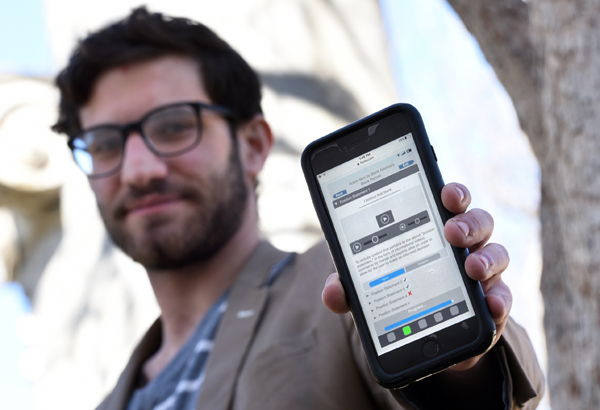College of Idaho Undergraduates Develop New Political App RepCheck
What’s your congress person’s name? Have you ever sent them an email? Have you ever called them? Those are the questions Leo Yousif (College of Idaho, 2017) asks whenever he talks about the new app he’s trying to develop—RepCheck.

RepCheck is an app which would help constituents craft emails to send to their legislators, thus letting their voices be heard in a productive way.
“The idea is if you’re spending time writing paragraphs [of political statements] on Facebook that your senators aren’t going to read, why not do it in a way that your senator will read it?” Yousif said.
And to get seed money for their idea, Yousif and Nik Salinas (College of Idaho, 2018) entered the Idaho Entrepreneur Challenge—a state-wide venture competition with $100,000 in seed funding at stake for college students. Out of 70 applications submitted, RepCheck made the top-26 finalist cut. So on March 31, the duo will pitch their idea in Boise in hopes of getting their idea off the ground.
The idea for RepCheck started when Yousif was a sophomore interning with the advocacy nonprofit Alliance in Washington, D.C. He realized there was no single media platform centered on advocacy to let people send emails to their senators and representatives.
So this summer, he partnered with Theta Psi Chapter brother Salinas, to make an app that would make it easier for voters to draft emails and contact their legislators.
“I feel like there are people who need their voices heard,” Salinas said. “And we have to give them a way to get their voice out there.”
So how does RepCheck work?
First, a user builds a profile and looks up topic areas they’re interested in—such as criminal justice or human rights. Then they’d get a list of nonprofits that work within those areas, and have access to position statements from several nonprofitw. The user can then check off the paragraphs they agree with. RepCheck would then compile all of those statements into a formal email for the user to send to his/her legislator.
After sending the email, the user will see how much their legislator’s response agrees with them, how long it took to respond and, over time, see how often their legislator agrees with them. Come election season, that information will help voters make a more educated decision.
In the bigger picture, the goal is to get people—especially millennials—more directly involved in the political process. While most might say if you don’t vote you can’t complain, Yousif has another idea.
“My amended statement is that if you don’t send an email or call your congressman, then you can’t complain,” he said. “There is no possible way your congressman can read your mind.”
The theory is that if enough people are contacting their legislator’s office, their voices will be heard because there is power in numbers, which, from a politician’s perspective, equates to votes. And you can’t get reelected without votes.
“If we’re all going to vote, let’s vote in a smarter way,” Yousif said. “And if legislators are going to pass laws that you don’t agree with, let them know.”
Courtesy of The College of Idaho
